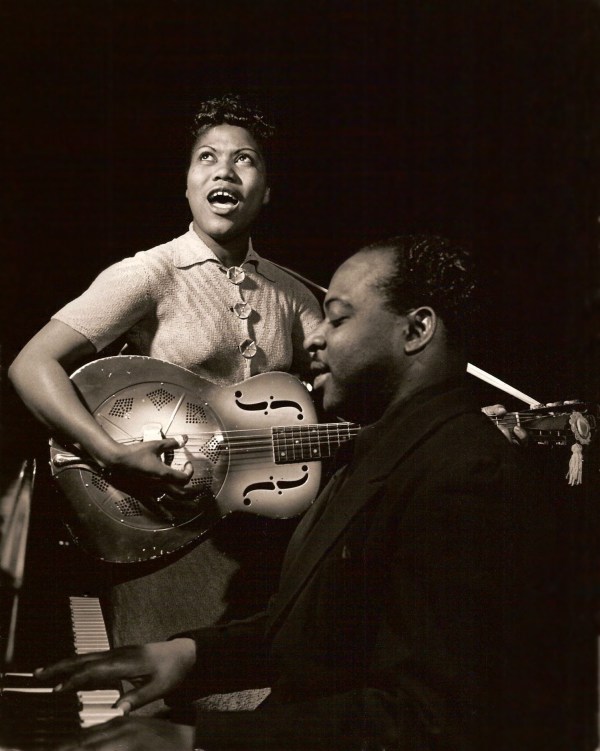NPR: Tharpe’s lyrics unabashedly flirted with her openness of love and sexuality, an approach that left her gospel audience speechless. “Rock Me,” which showcased Tharpe’s distinctive guitar style and melodic blues mixed with traditional gospel music, made her a trailblazer — as did the range of her voice, which resounded with conviction as she sang the words “rock me!” With this song, she made it plain that her words could not only transcend lines of faith, but could also represent a shift in popular music in real time.
YouTube
As a young black woman working within a heavily male-dominated industry in the 1940s, Tharpe wasn’t shy about rattling conventions. She collaborated with heavy-hitting artists of the time, like Duke Ellington and the Dixie Hummingbirds. In 1941, she began travelling widely with the Lucky Millinder Orchestra, a notable swing band, and recorded the likes of “I Want a Tall Skinny Papa” with them. She even teamed up with the Jordanaires, an all-white male group, and began performing for mixed audiences. Despite her fame, institutional racism in the mid-1940s was still rampant. On tour, all restaurants and hotels were still segregated, so Tharpe slept on buses. She went around the back end of restaurants to pick up food because they wouldn’t let her in.
Yet the spirit in her music never broke. She soon gained a celebrity status and even became a legend amongst black soldiers fighting in World War II. After the war, Tharpe started working with Sammy Price and produced a famous spiritual single, “Strange Things Happening Everyday,” with Decca Records. As Gayle Wald’s biography Shout, Sister, Shout!: The Untold Story of Rock-and-Roll Trailblazer Sister Rosetta Tharpe puts it, the song specifically references what was happening in the mid-1940s: WWII was ending; the atomic bomb was dropped in Hiroshima; Jackie Robinson had just been signed to the major leagues. The expression “strange things” helped to express the uneasiness of the bewildering events going on in the world, and Tharpe translated that seamlessly through her music. “Strange Things Happening Everyday” would become one of her most well-known records, as well as the first gospel song to cross over into the R&B top 10 charts. Some even argue that it was one of the first rock ‘n’roll recordings.
By the time she was thirty, Sister Rosetta Tharpe had survived two marriages (including one to a preacher she married at age 19) and various relationships with both women and men. Although she was open about her sexuality within the industry, she kept this secret from the public. Tharpe eventually met her partner, Marie Knight, when they teamed up with their hit “Up Above My Head.” The duo began touring by themselves (along with their band) and started taking control of their own business decisions. They toured, collaborated and performed as two queer black women in a relationship in the late 1940s; it was a radical act. MORE

